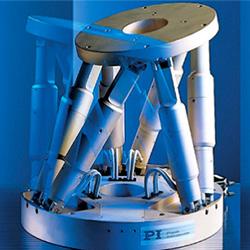Essentium Research Shows Additive Manufacturing is Ready for Prime Time
- Full-scale production runs shift from tens to hundreds of thousands - Additive manufacturing proven for supply chain resilience during the pandemic - New materials expectations alongside growing applications
AUSTIN, Texas, November 11, 2020 - Essentium, Inc., a leading innovator in industrial additive manufacturing (AM), today announced the first in a series of findings from independent global research on the current and future use of industrial 3D printing. The third annual study reveals that the use of large-scale AM has more than doubled in the past year for 70 percent of manufacturing companies. The number of companies that have shifted to using AM for full-scale production runs of hundreds of thousands of parts has doubled from 7 percent in 2019 to 14 percent in 2020, proving AM has evolved from the prototyping phase.
The survey highlighted the increasing expectation for more reliable and affordable 3D printing materials to deliver on AM's promising range of benefits. The survey showed continued agreement that the manufacturing industry could save billions of dollars in production costs once 3D printing technology matures (90 percent of manufacturers agree). The majority (84 percent) of respondents think that companies investing in AM will have a clear competitive advantage in the next five years, while 87 percent believe 3D printing will increasingly drive local manufacturing. However, to achieve these benefits, materials innovations will be critical to overcome obstacles, including the high cost of 3D printing materials (37 percent) and unreliable materials (24 percent).
Essentium is removing these barriers by creating an open ecosystem comprising the HSE printing platform, which re-writes the speed and economics of industrial-scale AM, an open software environment, and a broad choice of materials that ensure reliability, repeatability, and performance for industrial applications.
Said Blake Teipel, Ph.D., CEO and Co-founder, Essentium: "The results of this survey show we're at the beginning of radical change. Additive is ready for prime time, and manufacturers are already moving into actual manufacturing to save manufacturing costs while building stronger supply chains that can withstand the worst type of unforeseen events - such as the pandemic."
Survey Methodology:
169 managers and executives from manufacturing companies across the world completed the survey on their current experiences, challenges and trends with 3D printing for production manufacturing. Participants included a mix of roles and were from companies of various sizes across industries including aerospace, automotive, consumer goods and contract manufacturing.
About Essentium
Essentium, Inc. provides industrial 3D printing solutions that are disrupting traditional manufacturing processes by bringing product strength and production speed together, at scale, with a no-compromise engineering material set. Essentium manufactures and delivers innovative industrial 3D printers and materials, enabling the world's top manufacturers to bridge the gap between 3D printing and machining and embrace the future of additive manufacturing. Essentium, Inc. is ISO 9001:2015, AS9100D and ITAR certified.
Featured Product

